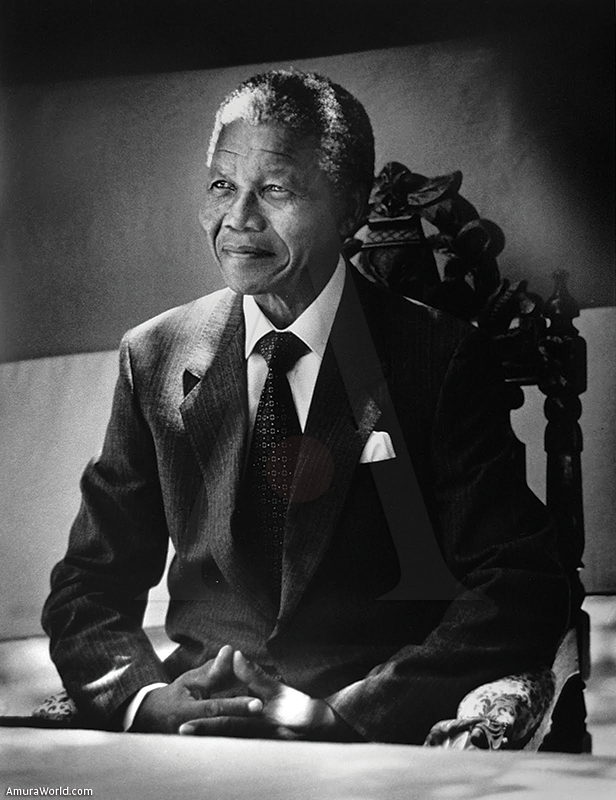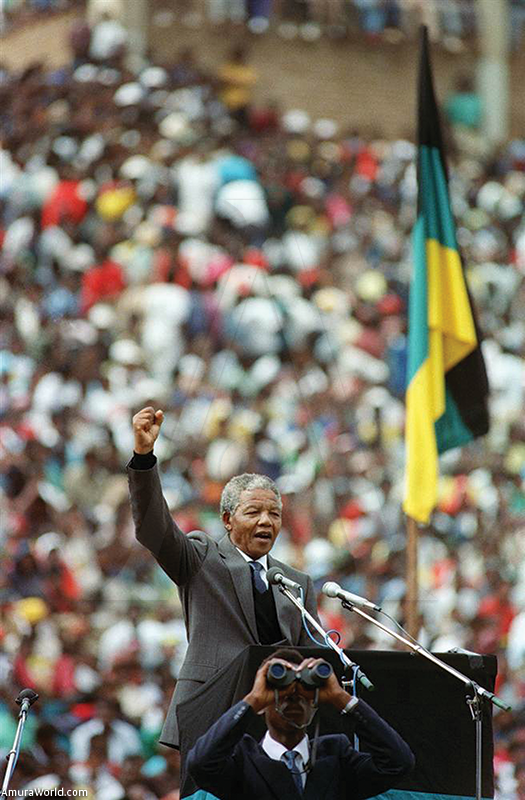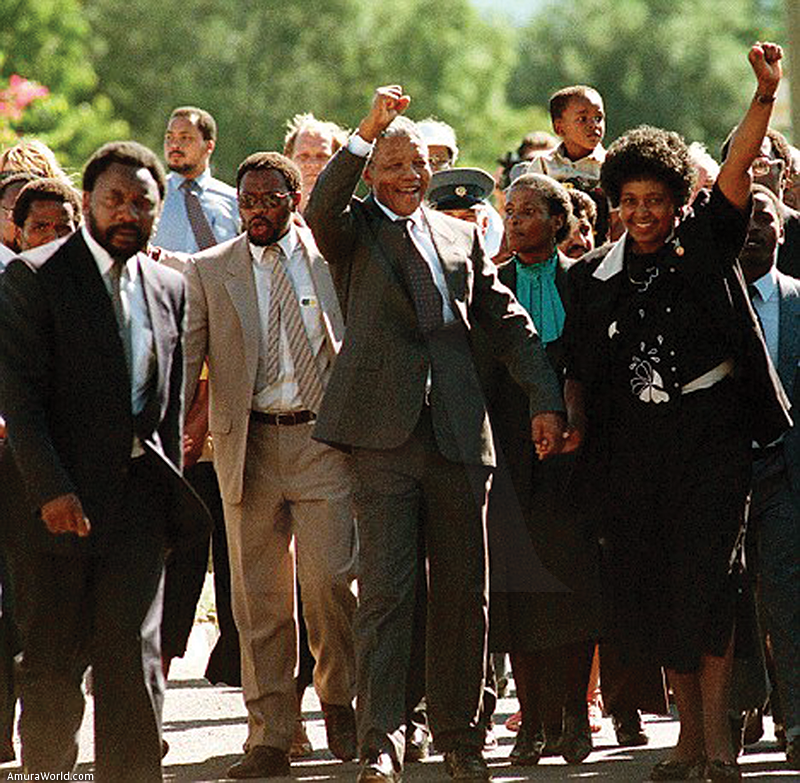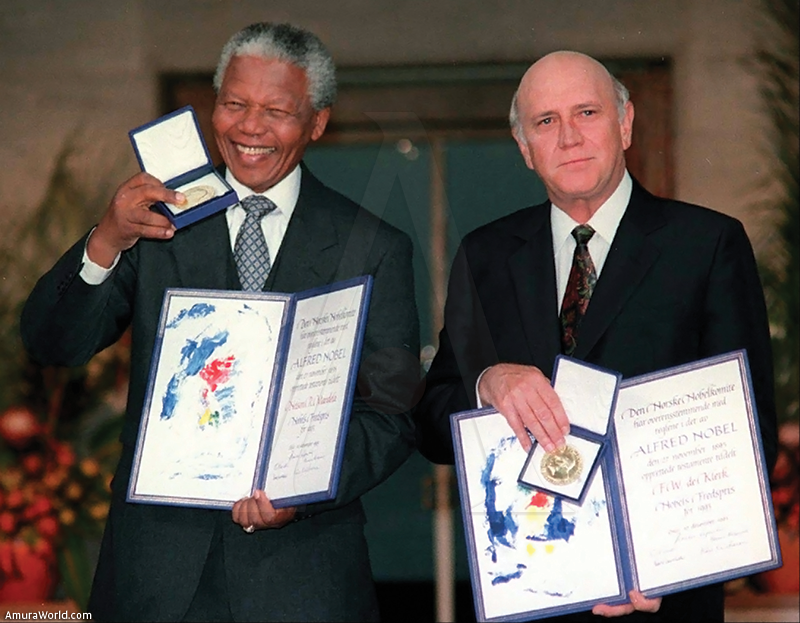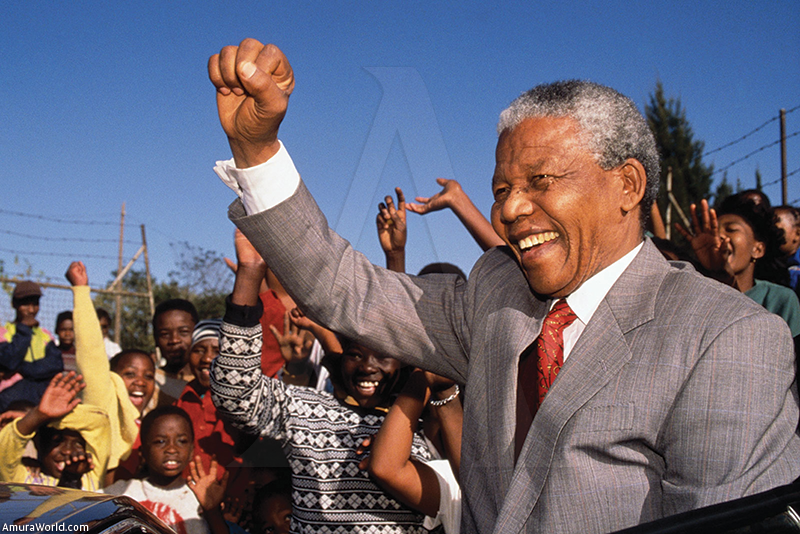“ I am the master of my fate, I am the captain of my soul”
Far from political and social postures, Madiba (as elder men from the Mandela clan call him with affection) is a transcendental figure in the history of our perceptions and ideologies toward the human race, the conscious of being, the union of ethnicities, the no discrimination and the pacific coexistence.
Born on July the 18th of 1918, in Southafrica, this man has held high his roots, fighting for his ideals, and the improvement of his country, obtaining the multiracial democracy in his beloved Africa. Parting from simple origins, Madiba was born in a little town of scarce population, called Mvezo. Son of Gadla Henry Mphakanyiswa and great grandson of king Ngubengcuka, little Mandela attended college in Fort University, to obtain a major in art. Demonstrating from a young age his promise, since he was elected member of the representative student council. In 1914 he translated to South Africa’s capital, Johanessburg, finishing his studies via correspondence, since the prior year he had been expelled from school by attending to a march made by students. How ever, he ventured in what would later be his emblem, law, graduating as an attorney in 1942.
This new vision of society along the notion of injustice, gave him a new perspective of life. Converting into an activist by the time he reached 30 years of age, being a member of the National South African Party.
On the side, he had a lawyer’s dispatch, in which he proportioned legal aid of little economic retribution to the less fortunate. This led to his arrest the 5th of December of the year mentioned. During 27 years of imprisonment and a correspondence study from the University of London, the 5th of February of 1990, Madiba obtains liberty along with his colleagues and friends, also put under arrest on the same date.
- “Mr. Mandela, how have you known to use words as a tool to obtain harmony in the country?”
- “ Twenty seven years in jail, have taught me, from the silence of solitude, to what point words are precious, and until what point language has a true impact in the way people live and die.”
During this 1990 interview, before an astonished NY Times interviewer, Nelson Mandela explains that feeling fear would have been an act of treason to the people and their conscious. Allowing fear and impulse of conservancy, would have led him to participate in the armed struggle for democracy and human rights, being a contradiction to his ideologies, forged by revolutionary pacifists.
With these words shouted to the world, prisoner 466/64 of Robben Island, creates a pacific and solidary movement for his homeland.
Crushing taboo and proposals of archaic sentiments, a function that didn’t help the country anymore and declaring in an unmovable fashion his point of view which would transcend its generation, that would arrive to all corners of the world and move feelings, creating prosperity and happiness for the people in Africa.
A pact that constructed a society in which all South Africans, no matter their skin color, could walk tall, without fear in their hearts, sure of their inalienable right of human dignity. Converting the past in a rich resource that could be used for the decision making of the future, with out dictating elections. Looking at the past to make a selection of what was good, Nelson Mandela created his philosophy: No one comes to this world hating other people for the color of their skin, it’s origins or religion. If people learn to hate, they can also be taught to love, because love makes its way into the human heart” Ideology which granted him of the Nobel Prize in 1993, and the presidency of his country a year later.
His biggest inspirations are the men and women that have appeared across the planet, and that fight for the progress of humanity. Brave men and women, who combat suppression of the human voices, of sickness, of analphabetism, of ignorance, of poverty and hunger. Some of them are known, and others not. He urges the generations of today to be the writers of our destiny, so we may be characterized as stars that lead the way to a brighter future.
“There is no need to dissposses of chains in order to be free, but to live in a way that respects and gives strengh to the freedom of others”.
Text: AMURA ± Photo:erf / TODA NOTICIA / SENTINEL / DAILYHERALD / maturin

